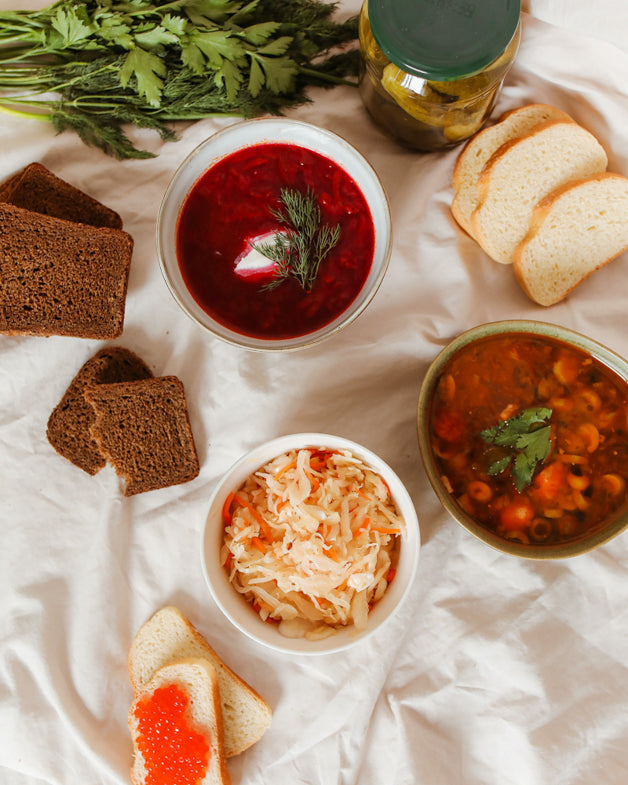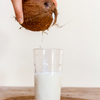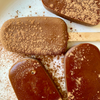Are Prebiotics or Probiotics Better For Your Gut Health?

You may be familiar with the health terms prebiotic and probiotic. In my Melbourne clinic, I am talking a lot about these to my patients and how they can support the health of their gut. So what do they mean and how do you know when to use them?
What is a prebiotic?
-
Oligosaccharides in the form of fructooligosaccharides (FOS), galactooligosaccharides (GOS), isomaltooligosaccharides (IMO), xylooligosaccharides (XOS), transgalactooligosaccharides (TOS), and soybean oligosaccharides (SBOS).
-
Polysaccharides such as inulin, resistant starch, cellulose, hemicellulose and pectin
-
Lactitol
-
Lactosucrose
-
Lactulose (2)
A lot of these you may identify them as high FODMAP (Fermentable Oligosaccharides, Disaccharides, Monosaccharides and Polyols), which is another reason a long term strict low FODMAP diet can be problematic for your health.

What is a probiotic?
Simply put, probiotics are the live organisms. Probiotics differ from our indigenous bacteria, in that probiotics are transient in nature (they do not stay in your gut permanently)(4).
Should you take prebiotics and probiotics?
How prebiotics help your gut
Technically, a healthy and varied diet will contain adequate food sources of prebiotics, so the addition of a prebiotic supplement could be considered when you want to further.
-
Support the health of your gut and the bacteria within large intestine. Prebiotics (in a healthy gut) avoid breakdown and fermentation in the small intestine. If however you experience bloating or react to these healthy fibres like onion, garlic, apples and chickpeas, reach out and see what's really going on in your gut.
-
Provide a food source that will selectively promote the growth of beneficial indigenous organisms
-
Provide long term microbiome changes, provided prebiotic foods are consumed long term
-
Support the production of beneficial byproducts, such as short chain fatty acids (SCFA) from the fed bacteria. The benefits of SCFA's are endless and include providing immune support, anti-inflammatory actions and acting as fuel for your gut cells.
How probiotics improve your gut health
-
Support the health of your gut and the bacteria within the small AND large intestine
-
Help the overall health and balance of the species currently inhabiting your gut
-
Provide competitiveness with respect to microbial species inhabiting your gut i.e. the presence of some species support the growth of others
-
Protective activity towards pathogens (e.g., H. pylori, Salmonella sp., Listeria monocytogenes, Clostridium difficile).
-
Provide support in the adherence and ability for species to colonise within in (2)
-
Have a condition or symptom that requires specific bacterial strain for support. Some conditions and symptoms that have strain specific probiotics proven to be beneficial include leaky gut, ulcerative colitis, IBS, constipation and diarrhoea, eczema, depression and anxiety.
Is it safe to take probiotics and prebiotics at the same time?
-
Lactobacillus genus bacteria + inulin
-
Lactobacillus, Bifidobacterium, Enterococcus genus bacteria + FOS
Synbiotics are used to improve the survival of beneficial microorganisms and for the stimulation of the proliferation of specific native bacterial strains present in the gastrointestinal tract (6).
What is best prebiotic to take?
By doing this, you will promote the growth of your beneficial indigenous species that view those prebiotic foods as their preferred fuel. For example by eating foods high in the prebiotic substances fructooligosaccharides (FOS) and inulin you will support your Bifidobacteria species (7).
If you need a bit of extra help you can buy prebiotic powders such as inulin and have them too, however I always suggest optimising the diet first. Some example of prebiotic rich foods you may want be familiar with include:
-
Leeks, asparagus, onions, wheat, garlic, chicory, oats, soybeans, and Jerusalem artichokes that contain inulin.
-
chickpeas, legume beans (e.g. baked beans, kidney beans, borlotti beans), lentils, pistachio nuts and cashews as they contain GOS (8).
What is a good probiotic to use?
My answer to 'are probiotics or prebiotics better?'
-
If high fibre foods cause digestive symptoms like bloating, look into why this is rather avoiding the food.
-
A multi-strain probiotic could be a nice addition for general maintenance, but as mention, may not be adequate for treating certain conditions.
-
Optimise the diet and consume high fibre, high prebiotic foods and fermented foods daily. Fermented foods also have a powerful role in helping you overcome sugar cravings and managing your weight.
If your gut health is a little or a lot more complex than taking a simple prebiotic or probiotic, check out Bloated to Body Confident . It is the step-by-step strategy for finding your root cause, comprehensive functional and diagnostic testing, personalised dietary advice, holistic support, effective treatments and sustainable solutions, empowering evidence-based information and a clear action plan.

-
Posted in
Gut Health





